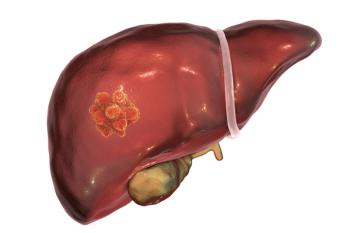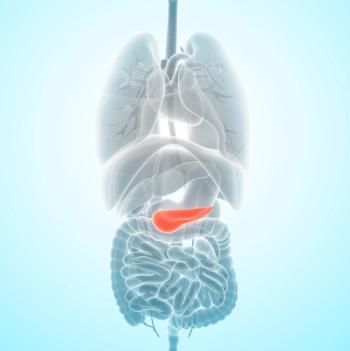
Vepdegestrant shows significant clinical activity and a favorable safety profile in ESR1-mutant HER2-negative, ER-positive metastatic breast cancer vs fulvestrant.

Your AI-Trained Oncology Knowledge Connection!


Vepdegestrant shows significant clinical activity and a favorable safety profile in ESR1-mutant HER2-negative, ER-positive metastatic breast cancer vs fulvestrant.

T-DXd improved OS, PFS, ORR, and DOR vs ramucirumab plus paclitaxel in the second-line treatment of HER2-positive gastric cancer or gastroesophageal junction adenocarcinoma.

At a median time to response of 1 month, isatuximab elicited a median duration of response of 10.3 months in patients with multiple myeloma.


Andrew Brenner, MD, PhD, discussed rhenium obisbemeda and results from the ReSPECT-GBM trial for patients with glioblastoma.

Updated findings from BREAKWATER support encorafenib plus cetuximab and chemotherapy as a new standard of care in BRAF V600E-mutated metastatic CRC.

Combination therapies with teclistamab exhibited a superior overall response rate vs teclistamab monotherapy in relapsed/refractory multiple myeloma.

Ivonescimab plus chemotherapy reduced the risk of disease progression or death by 48% vs chemotherapy alone in patients with EGFR-mutant NSCLC.

Reshma L. Mahtani, DO, describes how updates from the DESTINY-Breast09, ASCENT-04, and VERITAC-2 trials may shift practices in the breast cancer field.

Survival benefits were observed across most post-hoc subgroups treated with anlotinib plus penpulimab, particularly among those with high-risk disease features.

After a lack of significant topline overall survival data from the phase 3 HERTHENA-Lung02 trial, the application for HER3-DXd in NSCLC was withdrawn.


The decision is based on results from the phase 1/2 SOHO-01 trial evaluating the agent in patients with advanced HER2-mutant non–small cell lung cancer.

A Chinese phase 2 trial found that anti-GPRC5D CAR T-cell therapy elicited an ORR of 84% in patients with relapsed or refractory multiple myeloma.

Full results from the phase 3 trial supporting CAN-2409 plus valacyclovir and radiation therapy in this indication will be presented at the 2025 ASCO Annual Meeting.

Phase 3 data may support FOLFIRINOX as a standard of care in fit patients with locally advanced pancreatic cancer.

Eftilagimod alfa with pembrolizumab and radiotherapy exceeded the median tumor hyalinization/fibrosis vs historical benchmarks in resectable soft tissue sarcomas.

A 6-year analysis of the phase 3 STELLAR trial did not find any significant differences between total neoadjuvant treatment and concurrent chemoradiation in rectal cancer.


Experts highlight research at the 2025 ASCO Annual Meeting that may move the needle in gynecologic cancers, hematologic malignancies, and other fields.

Patients who received 70 Gy of radiotherapy had a significantly longer duration of treatment than those who received less than 70 Gy.

Clinical data from a phase 1 trial evaluating EBC-129 in solid tumors will be presented at the 2025 American Society of Clinical Society Annual Meeting.

Scalp cooling may enhance patients’ quality of life when managing hair loss associated with cancer treatment.

Select adverse effects examined during the initial 24 weeks of treatment occurred at a rare or occasional frequency and mild to moderate severity.

Diverse dermatologic AEs, such as hair and nail toxicities, can be associated with various cancer treatments.


Stage IV lung cancer may be curable based on the success of the DREAM Program, according to thoracic surgeon, Ankit Bharat, MBBS,

In the phase 3 ASCENT-03 trial, sacituzumab govitecan did not show an OS detriment vs chemotherapy in previously untreated metastatic triple-negative breast cancer.

Ten of 12 patients with metastatic pancreatic ductal adenocarcinoma given the recommended phase 2 dose of the combination regimen had a response.

Intensity-modulated radiotherapy increased some lower-grade toxicities vs 3D conformal radiotherapy in patients with locally advanced rectal cancer.